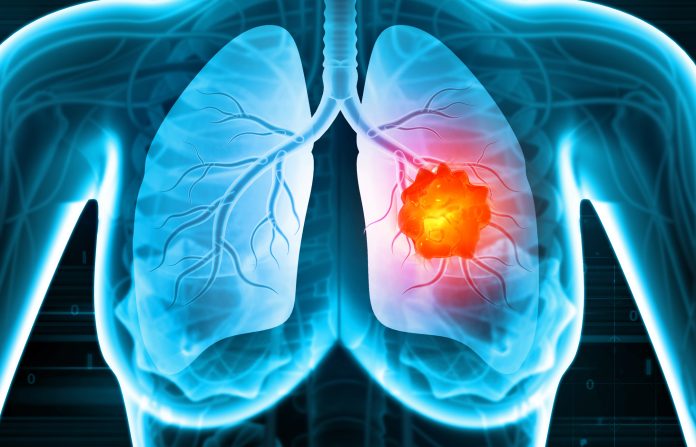Researchers have developed a lung cancer treatment that delivers healthy mitochondria to tumours, boosting T cell activity and improving the effectiveness of cisplatin chemotherapy with reduced toxicity
A new study has revealed that transferring healthy mitochondria into lung tumours can significantly enhance the immune response against cancer. By energising T cells at the tumour site, this approach improves the efficacy of cisplatin-based chemotherapy while reducing its harmful side effects. The findings offer a promising new direction for non-small cell lung cancer treatment by combining metabolic support with traditional cancer therapies.
The study is published in the journal Cancer Biology & Medicine.
Developing new treatments for lung cancer: A promising future
Non-small cell lung cancer (NSCLC) is the most common type of lung cancer, accounting for about 85% of all cases. It usually grows and spreads more slowly than small cell lung cancer. NSCLC includes different subtypes, such as adenocarcinoma and squamous cell carcinoma, and often develops in people who smoke, though it can also affect non-smokers. Treatment depends on how far the cancer has spread and may include surgery, chemotherapy, radiation, or newer targeted and immunotherapy options.
A team of researchers from Tongji University School of Medicine and Nantong University have developed a novel approach to lung cancer treatment. The researchers investigated whether direct mitochondrial transplantation could improve the effects of chemotherapy in advanced non-small cell lung cancer.
The team isolated functional mitochondria from human cardiomyocytes, cells known for their high energy output, and transplanted them into non-small cell lung cancer tumour models, both in vitro and in vivo.
On its own, the mitochondrial transplantation did not harm cancer cells, but when combined with cisplatin, it significantly amplified tumour suppression. This synergy reduced the IC50 of cisplatin, a measure of the concentration of a drug required for 50% inhibition in vitro, from 12.93 μM to 6.7 μM, indicating greater drug sensitivity.
Shrinking tumours in mouse subjects
The researchers found that tumours in mice shrank more dramatically with the combination therapy than with chemotherapy alone, and immune infiltration markedly increased. Transcriptomic analysis revealed a striking shift in tumour metabolism: downregulation of glycolysis and hypoxia genes, and upregulation of oxidative phosphorylation pathways, reversing the Warburg effect, a metabolic phenomenon where cancer cells preferentially use glycolysis for energy even in the presence of oxygen. Markers of cell proliferation (Ki67, P53) and stemness (HIF-1α, CD44, CD133) were suppressed. Importantly, mitochondrial transplantation also restored mitochondrial activity in immune cells, enhancing the function of T cells and natural killer (NK) cells.
The lung cancer treatment caused no additional toxicity and preserved body weight and organ integrity, demonstrating that mitochondria can serve as a metabolic and immunologic reinforcement.
“This research introduces a powerful dual-action strategy,” said Dr. Liuliu Yuan, lead investigator of the study. “By replenishing immune cells with functional mitochondria, we are not just enhancing their energy — but restoring their ability to fight. At the same time, tumour cells become more vulnerable to chemotherapy. It’s like rearming the immune system while disarming the tumour. This could be a promising avenue for patients who don’t respond well to conventional treatment.”
The research highlights mitochondria’s unique biology to transform lung cancer treatment. In patients with advanced non-small cell lung cancer, mitochondrial transplantation could enhance the effects of existing chemotherapy drugs whilst minimising immune suppression.
This approach could be applied to other tumours where immune dysfunction and metabolic reprogramming are barriers to treatment success. With further refinement and clinical trials, mitochondrial transfer could evolve into a versatile platform for combination therapies, helping clinicians push past the current limits of cancer care and into a new era of bioenergetic and immune restoration.











